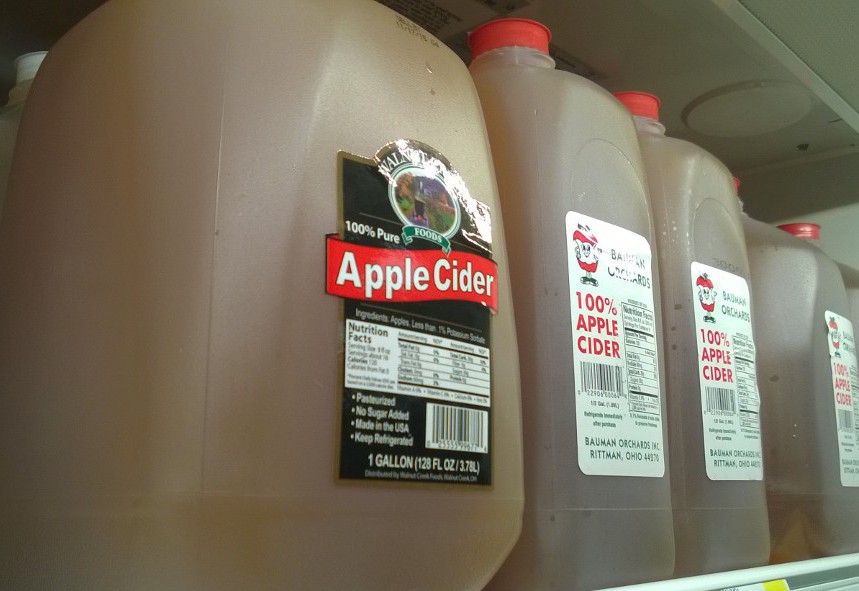Fall is here, the apple harvest is in full swing and that means it’s time for cider(PDF)! I do enjoy apple cider, but am cautious because it has been involved in a number of foodborne illness outbreaks.
Apple cider is an un-filtered, un-sweetened beverage made by crushing fresh apples. It is essentially raw apple juice. While the fresh pressed cider is delicious, it also could be contaminated with bacteria. . When the apples are crushed, any bacteria –(including dangerous E. coli O157:H7) that might be on the apples is mixed in with the cider. If the juice isn’t pasteurized to destroy these bacteria, consumers could get sick.
Those who are at the highest risk of getting a foodborne illness from consuming unpasteurized cider are people with weaker or weakened immune systems. This includes infants and young children, the elderly, people with diabetes and other chronic or long-term illnesses and transplant recipients.
When shopping for cider (or making an impulse purchase at the farm market), always check the label to see if the cider has been pasteurized. Untreated or unpasteurized cider should be kept refrigerated and has to carry a warning label such as “This product has not been pasteurized and therefore may contain harmful bacteria that can cause serious illness in children, the elderly, and persons with weakened immune systems.” If you are not sure if the cider has been pasteurized or not, just ask! People with weakened immune system should always drink only pasteurized cider.
Some people do not like pasteurized of cider, claiming that pasteurization affect the flavor and taste of fresh cider. I’d rather be safe and get used to a slightly different taste!
Written by: Kate Shumaker, Extension Educator, Family and Consumer Sciences, Ohio State University Extension Holmes County
Reviewed by: Sanja Ilic, Assistant Professor and Food Safety State Specialist, Department Human Sciences Human Nutrition, Ohio State University.

